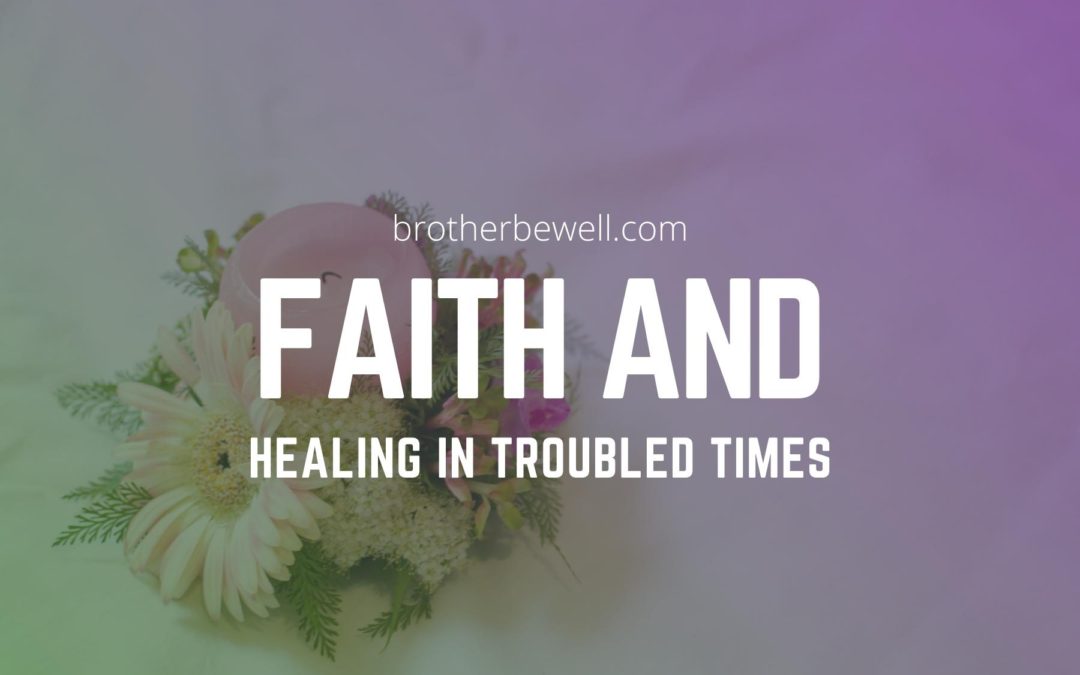In the midst of unrelenting gun violence, political divisions, climate change, economic insecurity, and now a pandemic, peoples’ faith can be tested. But faith can also provide a foundation for peace, forgiveness, and an ethical roadmap for living. Millions of Americans turn to faith and religious/spiritual beliefs and practices during turbulent times to remain anchored to love and community. The benefits of faith and spirituality cannot be overstated. It is widely known within sociology, social work, and psychology that there are clear benefits of religion/spirituality for mental and physical health.
Remaining strong in faith during troubled times
During the pandemic, people have sought to stay close to their religious community and practices, or spiritual beliefs and practices, despite not being able to be physically present with the community for prayer, study, and community service. For some, practicing their faith at home, with family in some instances, brought some unexpected benefits. Fatima Hasan, a wife and mother of two, discussed how Ramadan was different this year due to the pandemic but how staying home actually strengthened her family’s bonds and religious practices:
“Ramadan this year had more spiritual benefits for us as a family despite not having nightly prayers at the mosque or iftar at sunset with friends or in a communal gathering. Our local mosque provided daily lectures via YouTube Live to maintain our community and also provided food for iftar in boxes via drive thru. Our kids were able to observe fasts more often and do daily prayers since they currently are being home-schooled. We had no congregational Eid prayers due to the pandemic, but we did pray at home together as a family. It was great for family bonding. This pandemic/tribulation made us realize how much we take for granted and the blessings we have. Technology, for example, can still help connect our hearts despite being physically apart from loved ones.”
Although houses of worship in California have re-opened many worshippers want to continue practicing their faith from home. The following religious organizations are continuing to offer online services and resources:
California Catholic Diocese Online Masses and Resources: https://www.cacatholic.org/covid-spiritual-resources
Episcopal Diocese of Northern California, online worship http://www.norcalepiscopal.org/online-worship
United Methodist Church online services for Californians https://www.umc.org/en/content/where-to-worship-online#pacific
Congregation Beth El, daily sermons live streamed https://www.cbe.org/
Shomreh Torah Synagogue live streamed services https://www.stsonline.org/media-galleries/live-streaming
Beth Israel of San Diego online Shabbat services https://cbisd.org/worship/schedule/
Dharma services, live streamed https://www.buddhistchurchesofamerica.org/live-streaming-and-recorded-temple-services/
For some, however the closing of houses of worship and the cessation of in-person religious services left a void. The benefits of being physically present with others for religious services, events, activities, prayer groups, or education cannot be overstated. In my own study that examined links between religious/spiritual beliefs and practices and mental health, I found religious service attendance was one of the strongest predictors of positive mental health. Many other researchers have found this link as well.
The health benefits of religion and spirituality
One of the strongest benefits of religion/spirituality for physical and mental health is belonging to a community of like-minded people who share your values, beliefs, and practices. Belonging to a community in general is known to decrease isolation and increase social support and feelings of connectedness. Attending services may be one of the few opportunities elderly persons or persons with disabilities have to be physically present with others.
Having a positive religious or spiritual path has been linked to better mental health including less anxiety, depression, and greater overall happiness (Aldwin, Park, Jeong, & Nath, 2014). Another mental health benefit of religion/spirituality is being better able to cope with life’s challenges and having a greater capacity to forgive others. Religion/spirituality can also give people a stronger sense of purpose and direction — that there are better things to come or growing spiritually as their life unfolds.
Religion/spirituality can also help people be less judgmental and more empathetic. It can increase positive feelings of regard, or even love, toward others — even strangers. In Buddhism loving-kindness meditations help people move from feelings of appreciation and love for themselves, then to those closest to them, to those they are less intimately connected with, then finally to all of humanity. Here is a loving-kindness meditation that you might enjoy: https://youtu.be/-d_AA9H4z9U
Having a religious or spiritual path also has been linked to better physical health including less inflammation, cardiovascular disease, and lower blood pressure (Aldwin, Park, Jeong, & Nath, 2014). The benefits of social connection, increased sense of purpose, optimism, and hope for mental health also positively impact physical health. Furthermore, meditation and mindfulness derived from religious or spiritual practices, including prayer, have been shown to improve memory, mental clarity, and lower blood pressure.
Embarking on a spiritual path
Anyone can embark on a new religious or spiritual journey at any time to cultivate greater wellness. Starting down a spiritual or religious path can be done in solitude or with the support of a community of faith. And there is no better time than now to develop your spirituality and suffering continues unabated all around us. As Zen Master Thich Nhat Hanh said, “If you touch suffering deeply in yourself and in the other person, understanding will arise. When understanding arises, love and acceptance will also arise, and they will bring the suffering to an end” (from Going Home: Jesus and Buddha as brothers, 1999).
You might begin your journey by watching a streamed religious service or spiritual talk, or by reading a religious text or a book on spirituality. There are so many resources out there and people willing to help you begin your journey. Here are a few videos and resources that might help you think about the kind of spiritual practices you would like to engage in to increase your wellness:
A History of God by Karen Armstrong
The Five Major World Religions – A TED talk by John Bellaimey



